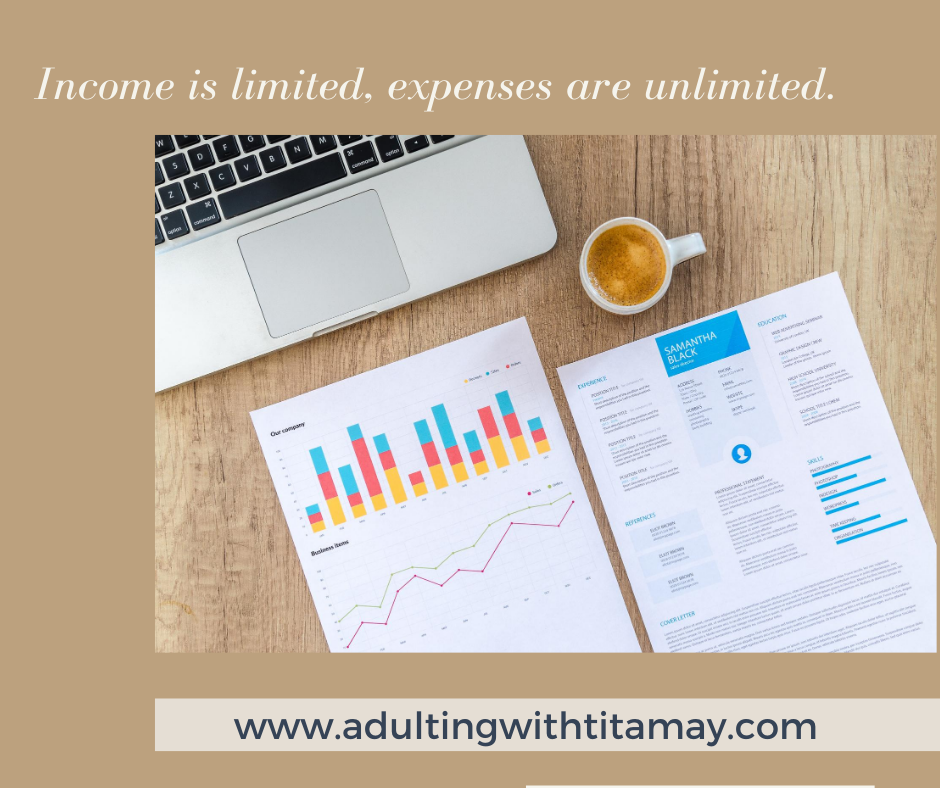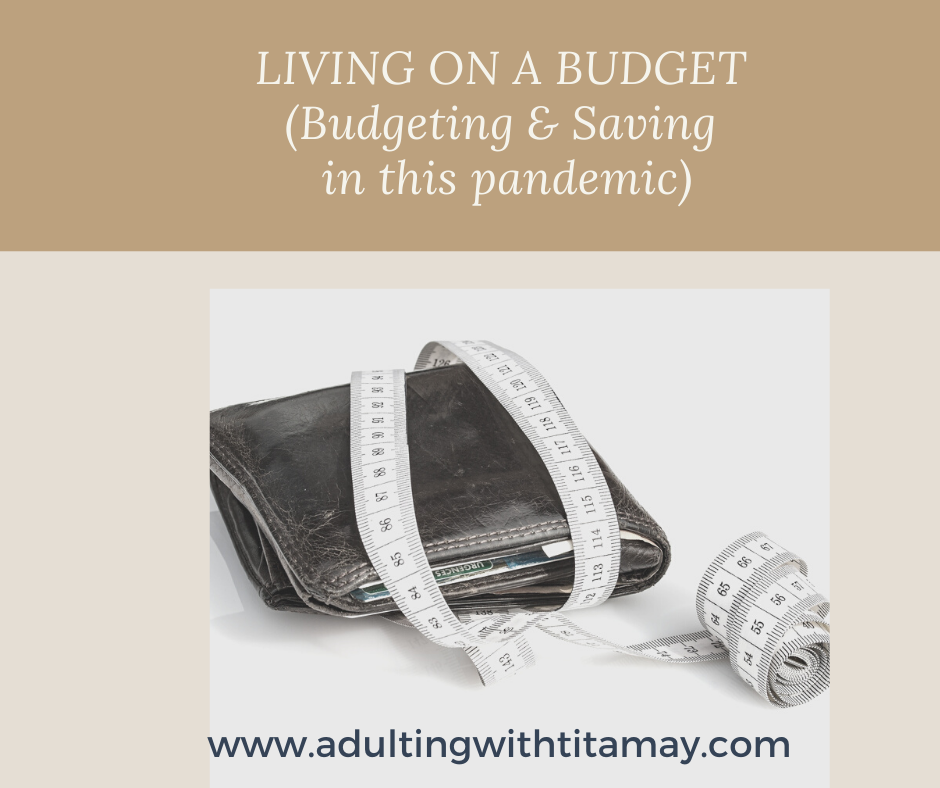How to live on a budget and save up during this pandemic
This was part of Chinkee Tan‘s talks in SunTalks Virtual Conference sponsored by SunLife Philippines and I found myself agreeing and laughing while listening to him, so I want to share my learnings with you.
Having a good financial habit is one of the most challenging things to do as an adult. Making a budget and sticking to it is one of the many lessons I wished I knew when I was starting out as a young professional. Learning how to live on a budget and saving up is even more needed while we are facing this pandemic.
Some of us have lost the source of regular income or some have pay cut. Businesses lost a lot; recession is looming. So how do we survive and how to live on a budget in these challenging times?
It it important to know how to live on a budget, pandemic or not. It is the time to revisit our budgeting skills. And it is not just on how much we know about budgeting, but how we will be able to apply it. We need to learn how to budget to be able to save.
What is a budget? A budget is an estimation of income and expenses on a period of time and re-evaluated on a periodic basis. It is an effective management of your finances. It is maximizing what you get from your hard-earned money.
Budgeting seems daunting or you even think it is only for those with big paycheck. Budgeting is about tracking your money nor it is not dependent on how much you are tracking. Focus on making sure that you account your expenses, re-assessing and adjusting the spending as needed after each month.
Why budgeting is not that easy?
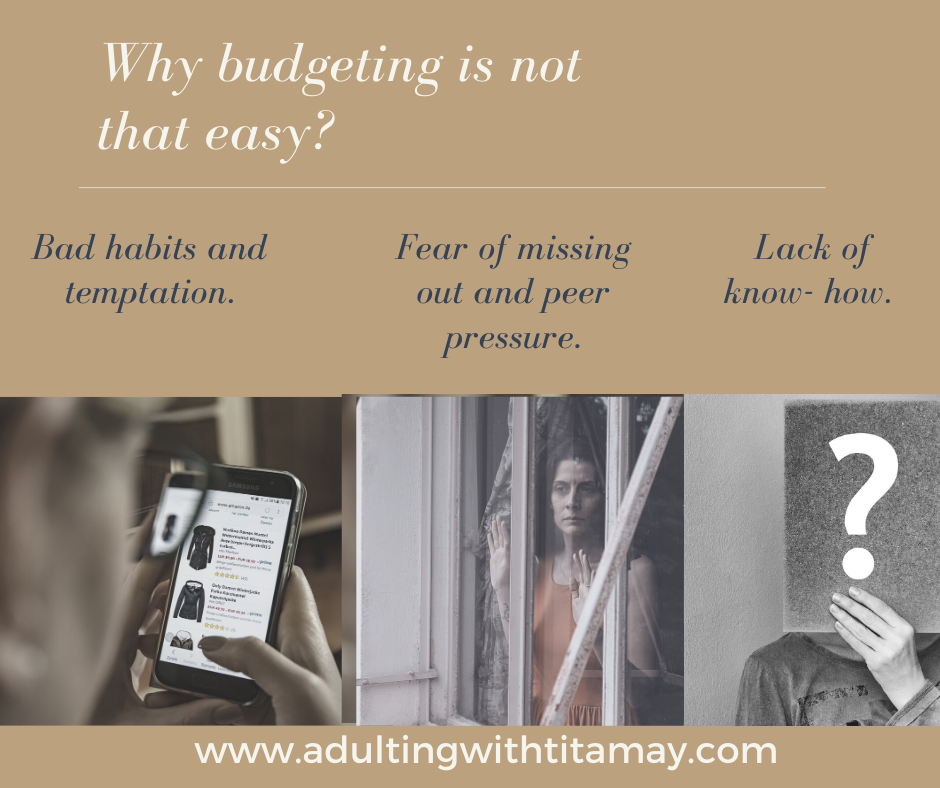
- Habits die hard. And bad habits stick. We are what we repeatedly do. If we want to save, then we have to change our bad habits. Including staying away from the temptation and distractions in our lives. How many online shopping apps are in your phone right now? How many have you purchased even though you do not need it, but just because you were tempted by the sale?
- FOMO (fear of missing out) and peer pressure. Tell me who your friends are, and I’ll tell you mine. 😁 Kidding aside, you need to have a circle that holds you accountable. Have an accountability buddy that supports your budgeting journey. Someone who asks you- do you really need to buy that? Have someone who reminds you of your goal to save, not someone who tempts you to buy unnecessary stuff. Also, do not compare yourself with what you see other people post online. You do not need to be always on the trend. Focus on your goal to save.
- Lack of know- how. Not all of us have a good role model at home in terms of finances. And it is a struggle to learn and even unlearn the bad money habits we learned since childhood. It is a strong conviction at your end to not continue. You don’t want to be in debts just like your parents right? You have the technology at your fingertips so use this and learn how to make your own budget. Download apps to monitor your daily expenses. I personally use Expense Calendar app , it’s free and easy to use.

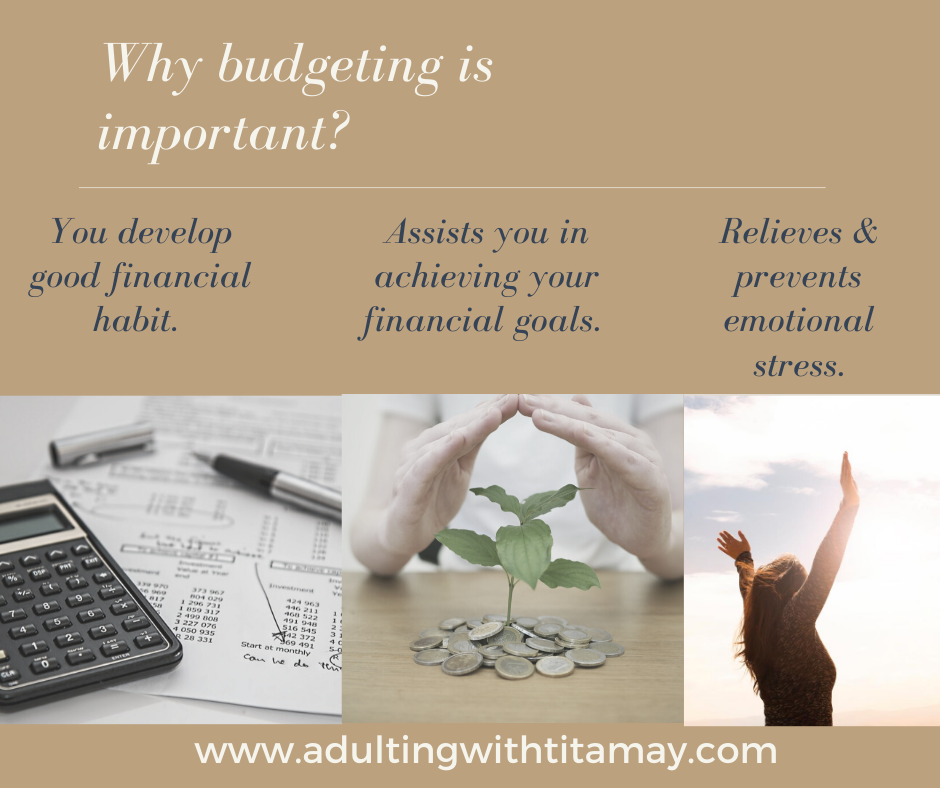
How do you design a budget in your situation?
Adjust your plans, activities and spending based in your income. DO NOT SPEND THE MONEY YOU DO NOT HAVE. Control your spending habits. You also have to discipline your emotional spending. Do not shop on a whim especially when you are sad. Save what you can afford and do it consistently. And as your income increases, your savings should also increase. Increase your sources of income. Always have the mindset for saving and for your financial goals. What are you saving for? Visualize it and keep that in mind.
INCOME – SAVINGS = EXPENSES
- Determine and set your financial goals. Write down your goals. What do you like to achieve in 1-5 years (short-term), 6-10 years (mid-term), 11-20 years (longterm)?
- Know your exact income.
- Monitor your spending. By keeping track of your expenses, you will also know the schedules for bill payments and the debts you need to prioritize.
- Allocate your spending. You have fixed expenses (house amortization/rent,utility bills), variable expenses (transportation cost, eating out, grocery share). And unexpected expenses (calamity/ emergency fund, ).
- Review and assess monthly.
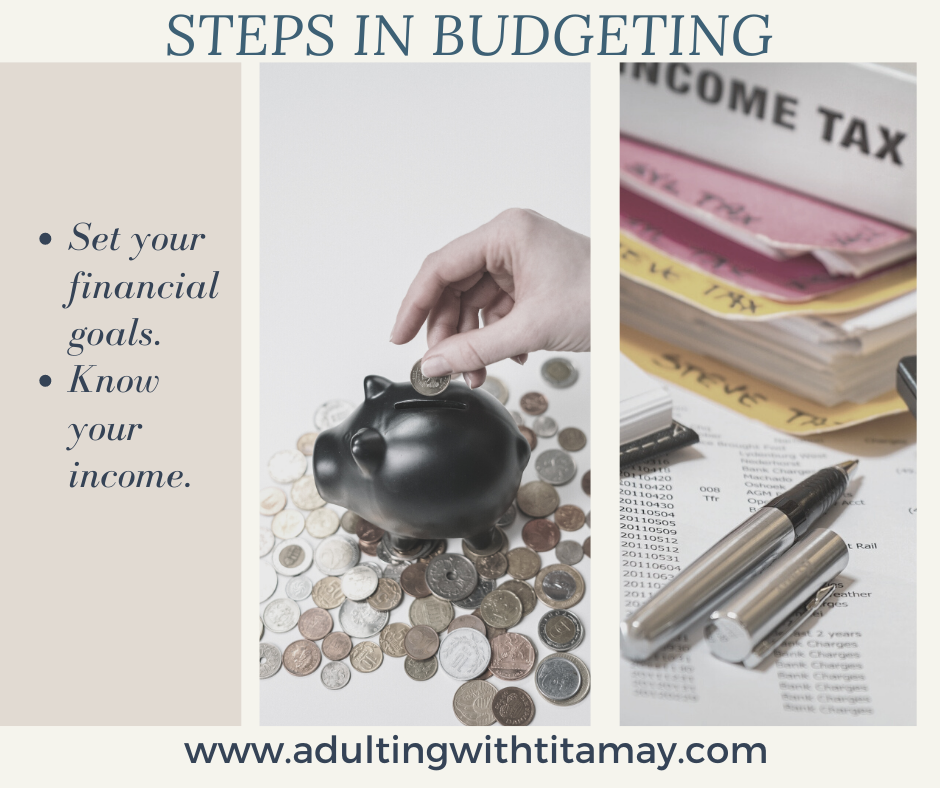
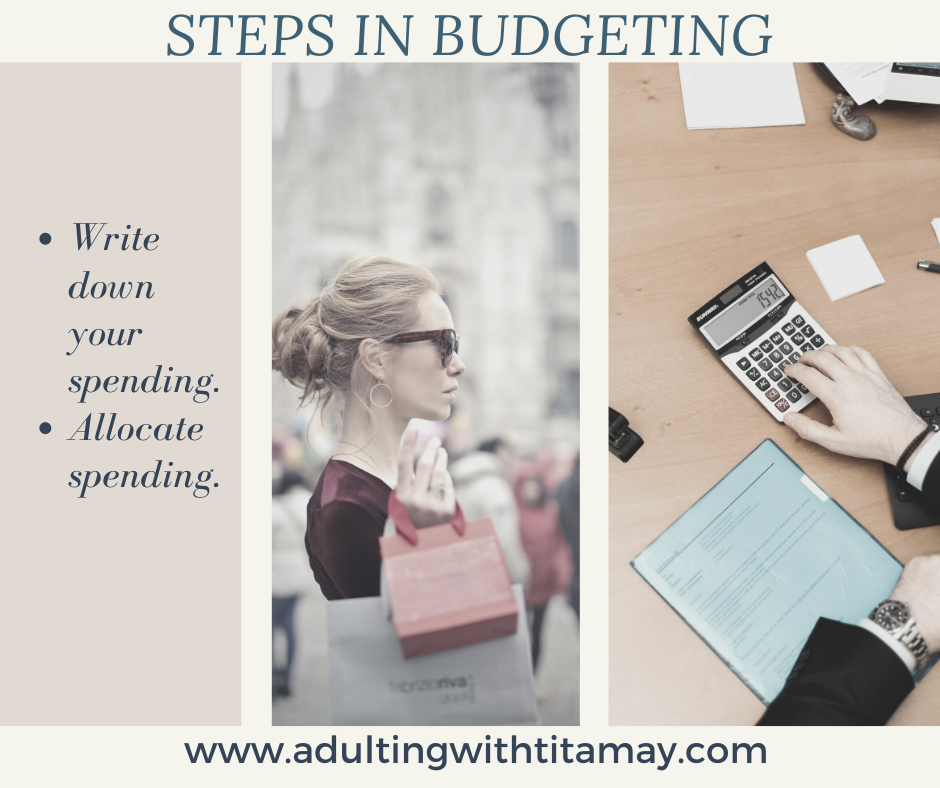
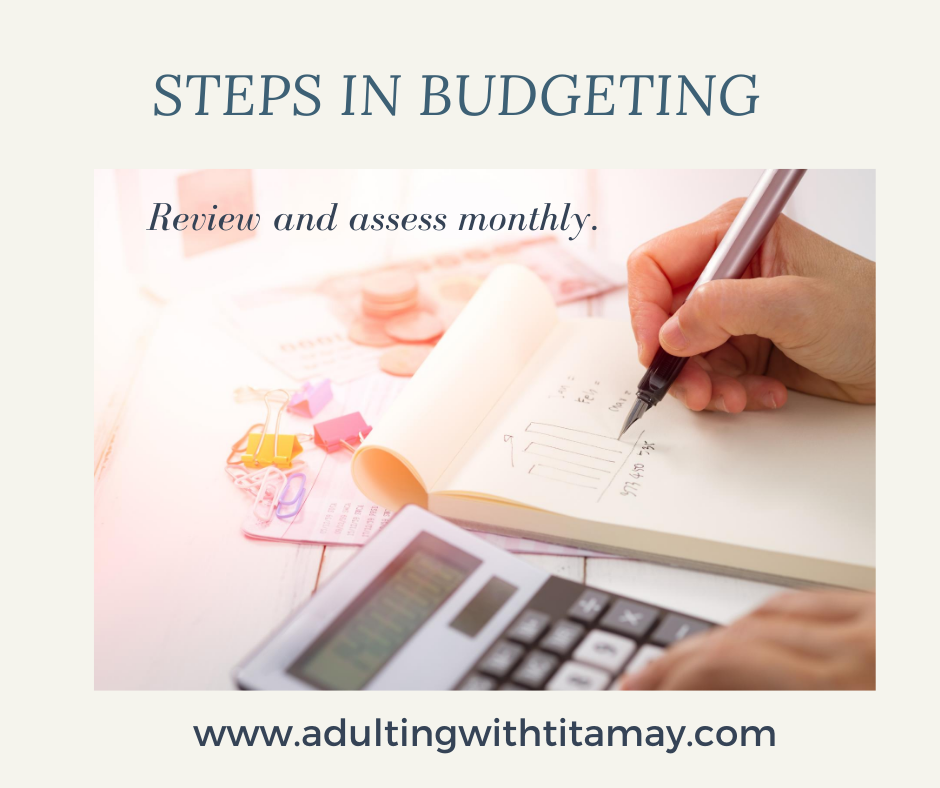
Saving is all about creating a good financial habit. Budgeting does not mean you have to make yourself guilty every purchase. This is to make you aware of your spending habits and reminding yourself that you have to save a little each month, at least 5-10% of your income to make sure you are not spending more than you earn. You need to know where your money is going and it will help you learn how to live on a budget.
The point in making and living on a budget is to keep you out of overwhelming debt and help you attain your goals and financial freedom. Think of your life goals and keeping to your budget will help you get there.
